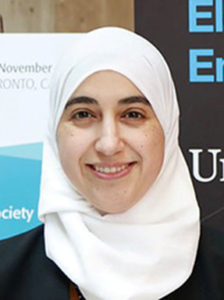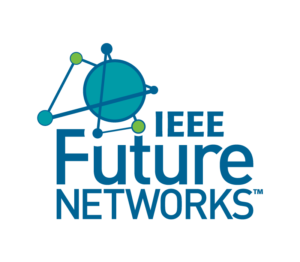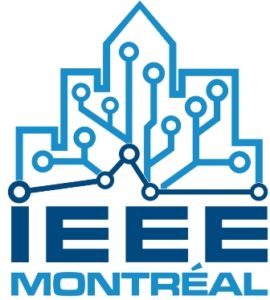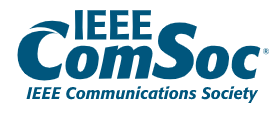12 October 2022 // 11:00 – 12:30 // Hybrid
MODERATOR
 Antonio Skarmeta, Universidad de Murcia, Spain, skarmeta@um.es
Antonio Skarmeta, Universidad de Murcia, Spain, skarmeta@um.es
Short Bio: Antonio Skarmeta received the M.S. degree in Computer Science from the University of Granada and B.S. (Hons.) and the Ph.D. degrees in Computer Science from the University of Murcia Spain. Since 2009 he is Full Professor at the same department and University. Antonio F. Skarmeta has worked on different research projects in the national and international area in the networking, security and IoT, 5G and its application to monitoring and natural sciences. He coordinates several H2020 projects . Since 2014 until 2020 he has been Spanish National Representative for the MSCA within H2020. He has published over 200 international papers and being member of several program committees. He is CTO of Odin Solutions a spin-off company from University of Murcia, involved on IoT and 5G projects. He has also participated in several standardization for a like IETF, ISO and ETSI.
INVITED SPEAKERS
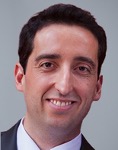 Xavier Costa-Pérez, ICREA Research Professor, Scientific Director at the i2cat Research Center and Head of 5G/6G Networks R&D at NEC Laboratories Europe
Xavier Costa-Pérez, ICREA Research Professor, Scientific Director at the i2cat Research Center and Head of 5G/6G Networks R&D at NEC Laboratories Europe
5G Security Review and Future 6G Challenges
Abstract: In this talk we will review the latest status on 5G security deployments and threats found so far. Then, the upcoming challenges with O-RAN will be discussed together with new 6G related technologies such as smart surfaces that might impact the security of future networks.
Short Bio: Xavier Costa-Pérez is ICREA Research Professor, Scientific Director at the i2cat Research Center and Head of 5G/6G Networks R&D at NEC Laboratories Europe. His research focuses on the digital transformation of society driven by the interplay of mobile networks and AI. His team generates research results which are regularly published at top scientific venues, produces innovations which have received several awards for successful technology transfers, participates in major European Commission R&D collaborative projects and contributes to standardization bodies such as 3GPP, O-RAN, ETSI NFV/MEC/RIS and IETF. He has served on the Organizing Committees of several conferences (including ACM MOBICOM, IEEE INFOCOM, WCNC and Greencom), published papers of high impact and holds tens of granted patents. Xavier received both his M.Sc. and Ph.D. degrees in Telecommunications from the Polytechnic University of Catalonia (UPC) in Barcelona and was the recipient of a national award for his Ph.D. thesis.
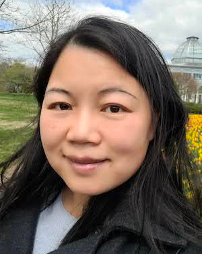 Carol Fung, Associate Professor at Concordia University Canada and Gina Cody Research Chair in Cybersecurity and the Internet of Things
Carol Fung, Associate Professor at Concordia University Canada and Gina Cody Research Chair in Cybersecurity and the Internet of Things
Cybersecurity Challenges in 5G Networks
Abstract: The emerging of 5G networks in recent years has created never-before-seen opportunities for end users and businesses. While we are enjoying the fast network speed and its flexibility in management, security issues also appear with the 5G technologies. In this talk, I will overview the major cybersecurity threats and solutions on 5G network technologies and envision the future challenges on 5G network security.
Short Bio: Carol Fung is an Associate Professor at Concordia University Canada and Gina Cody Research Chair in Cybersecurity and the Internet of Things. She received her PhD degree in Computer Science from the University of Waterloo. Her research interests include Network Privacy and Security, the Internet of Things, Network Management, Network Protocols and Social Networks. She has more than 100 peer reviewed publications. She is the Editor of IEEE TNSM and Elsevier COMNET.
Cybersecurity and Emerging Technologies: Leveling the Field
Abstract: The accelerated rate of technological innovation continues to inspire the next steps of our pursuit for the betterment of humanity. Cybersecurity and privacy continue to be an afterthought or an overlay, impacting our abilities to effectively and efficiently capitalize on emerging technologies in a trusted manner. In this talk, we expand on the concepts of cognitive and autonomous security, and further elaborate on how context-awareness and strategic principles may present the necessary shift to move us from the follower to the leader in the moving-target game of cybersecurity.
Short Bio: Eman Hammad’s research aims to develop tools and approaches to better understand and improve the operational resilience, security and privacy of large-scale, cyber-physical systems in general, and in autonomous systems particularly. Her work utilizes theoretical and applied research tools at the intersection of system dynamics, communication networks, control theory, machine learning and cognitive science.
Final Round table: includes panelists and Ved Kafle (NICT Japan) and Chamseddine Talhi (École de technologie supérieure, Canada)
 Chamseddine Talhi, Professor, Department of Software Engineering and IT, ETS, University of Quebec, Montreal, QC, Canada
Chamseddine Talhi, Professor, Department of Software Engineering and IT, ETS, University of Quebec, Montreal, QC, Canada
Short Bio: Chamseddine Talhi received the Ph.D. degree in computer science from Laval University, Quebec, QC, Canada, in 2007. He is a full Professor with the Department of Software Engineering and IT, ETS, University of Quebec, Montreal, QC, Canada. He is leading the LCSec Lab at ÉTS focusing on resilient and robust cybersecurity solutions for Cloud, Mobile and IoT infrastructures. His research interests include Cybersecurity Automation, Optimized and adaptive security mechanisms, Distributed Intrusion detection, Federated Learning, and Orchestration and Management of Security Services.
 Ved P. Kafle, National Institute of Information & Communications Technology, Japan
Ved P. Kafle, National Institute of Information & Communications Technology, Japan
Short Bio: Ved P. Kafle (S’04, M’07, SM’14) received the B.E. degree in electronics and communications engineering from Punjab Engineering College, Chandigarh, India, the M.S. degree in computer science and engineering from Seoul National University, South Korea, and the Ph.D. degree in informatics from the Graduate University for Advanced Studies, Japan. He joined the National Institute of Information and Communications Technology (NICT), Tokyo, Japan, as a Researcher in 2006. He is currently a Research Manager at NICT and a Visiting Associate Professor at the University of Electro-Communications, Tokyo. His recent research interests include 5G and beyond network architectures, Internet of things (IoT), network resource management, network operation automation by AI/machine learning, and standardization. He has been serving as a Co-rapporteur of ITU-T Study Group 13 since 2014. He received the ITU Association of Japan’s Encouragement Award and Accomplishment Award in 2009 and 2017, respectively. He has also received four Best Paper Awards from the ITU Kaleidoscope Academic Conferences in 2009, 2014, 2018, and 2020. He is a Fellow of ITU-T Study Group 13 and a member of IEICE.
Sign up for email alerts to get the latest news and announcements for the 2022 IEEE Future Networks World Forum. If you have specific questions, contact us at FNWF@ieee.org.






